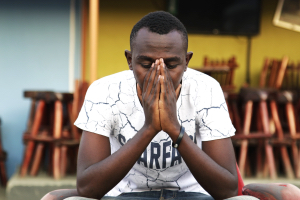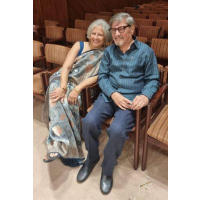
Geneva: Following the declaration of an Ebola outbreak in Uganda on September 20 2022, the outbreak has now spread to seven districts – Kasanda, Kyegegwa, Bunyangabu and Kagadi districts beyond the original epicentre in Mubende district, and then to Kampala City and Wakiso.
Vaccination is usually one of the response interventions in such an outbreak, however, there are currently no licensed vaccines (or therapeutics) for Ebola disease caused by the Sudan ebolavirus (SUDV), though there are several candidate vaccines which appear to be suitable for evaluation in a clinical trial during this outbreak.
The Ministry of Health designated the Makerere University Lung Institute to conduct vaccine and therapeutics clinical trials. The clinical trial to evaluate candidate vaccines against this ebolavirus is co-sponsored by the Ministry of Health in Uganda and the World Health Organization (WHO), and involves support from partners. A principal investigator from Makerere University Lung Institute will lead the vaccine trial.
Global health agencies outline plan to support Ugandan government
WHO, CEPI (an innovative partnership between public, private, philanthropic, and civil organizations, launched in 2017, to develop vaccines against future epidemics), and Gavi (a public-private partnership that helps vaccinate half the world’s children against some of the world’s deadliest diseases) are providing support to ensure that sufficient doses of candidate vaccines are available for the trial and beyond.
If sufficient doses can be made available, the aim of the vaccine trial would be to establish how effective the candidate vaccines are in diverse populations, WHO stated today. The vaccine developers and funders who will make the candidate vaccines available include the University of Oxford and the Serum Institute of India, the Sabin Vaccine Institute and the US government institutions Biomedical Advanced Research and Development Authority (BARDA) and National Institutes of Health (NIH), as well as International AIDS Vaccine Initiative (IAVI) and MSD.
Moreover, there are other organisations committed to supporting the overall response, including Africa Centres for Disease Control and Prevention (Africa CDC), UNICEF, non-governmental organizations, donors, and regulators including the African Vaccine Regulatory Forum (AVAREF).
The actions taken by the Ministry of Health in Uganda and its partners build on past collaboration and experiences responding to Zaire ebolavirus outbreaks (another Ebola virus species), on COVAX lessons learned, and on working on other vaccine stockpile mechanisms.
Beyond Ebola, the lessons from the COVID-19 response, including the establishment of the Access to COVID-19 Tools (ACT) Accelerator and key learnings from the vaccine pillar COVAX, are particularly important for the field of vaccine R&D, manufacturing, delivery and country and community engagement.
– global bihari bureau





